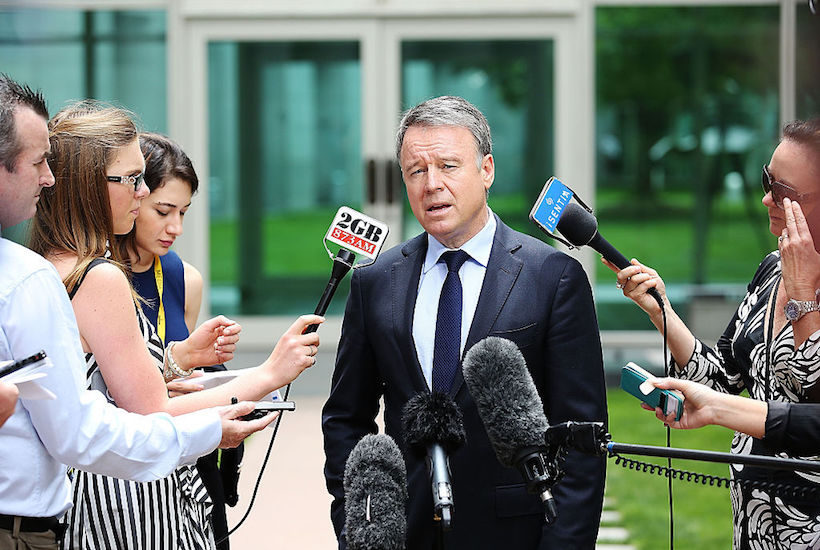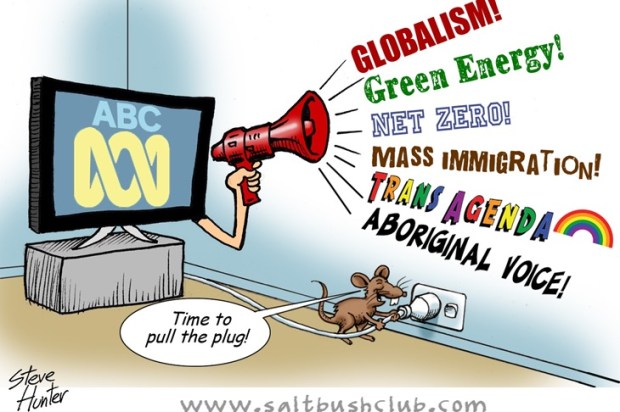On November 30, the ALP will close the consultation period for its Draft Platform, the time when people can make submissions before it is finalised.
The Draft Platforms spells out the policy directions for the party in the lead up to the next election including, climate policy.
On Monday, Joel Fitzgibbon, made his submission in the most emphatic way possible by resigning from Labor’s front bench and triggering an almighty internal row.
And the reality is that it is a row about nothing – just a target of zero net CO2 emissions by 2050.
You would have thought Labor had learned over the past decade that climate policy is not an electoral winner and that as a political party it has wrung as many votes out of the issue as possible.
During the 2019 election, climate policy was the most important issue for just ten per cent of voters with particular support amongst Labor and Green voters, according to the results of the 2019 Australian Election Study.
The economy –- jobs, taxation, economic growth and so forth — was twice as important, the major issue that it always is.
And this is what Fitzgibbon recognises while his inner-city colleagues can’t seem to see it.
Labor is brawling over a target to be met in 30 years and is rushing headlong down a path that Fitzgibbon recognises will cost jobs in electorates such as his of Hunter with its reliance on coal and industry for employment.
What is more, the stoush is over nothing as Australia produces just 1.3 per cent of the world’s CO2 emissions.
Unilateral actions by Labor can change nothing – except to the job prospects of Australians who live outside the inner urban seats.
As Mr Fitzgibbon said yesterday “I think the Labor Party has spent too much time talking about things like climate change — which is an important issue — and not enough on issues important to our traditional base.”
Climate change has become a totemic issue for some within the Labor Party as they battle the Greens in urban seats while regional and outer urban Labor electorates are under assault from the Liberal and National Parties and One Nation.
This tension was the catalyst for the stand-up row between opposition leader, Anthony Albanese, and Fitzgibbon in shadow cabinet.
Albanese’s inner Sydney seat of Grayndler is under constant threat from the Greens who won 22.5 per cent of the primary vote in 2019 while Mr Fitzgibbon’s seat of Hunter, with its strong working-class base, was almost a polar opposite with just seven per cent of the electorate voting Green while Labor’s primary vote is being sliced up by the Nationals and One Nation who are directly appealing to workers concerned about jobs and received between them 45 per cent of the primary vote compared to Labor’s 37.5 per cent.
And these results are not unique to Grayndler or Hunter. It is happening across the country.
The rifts in Labor run deep between the so-called progressive and the centrists that understand progressive policies are electoral anathema for the Labor Party.
The last time Labor won an election from opposition was in 2007 under Kevin Rudd who famously declared that climate change was the “great moral challenge of our time” yet even then climate policy was only an issue for seven per cent of the electorate, according to the AES survey.
Labor didn’t win the 2007 election off the back of climate change, but rather by pretending to imitate the policies of the coalition under Prime Minister, John Howard.
Labor’s leadership seems to have forgotten the lessons of 2007, but Fitzgibbon hasn’t.
According to media reports, Albanese and the left of the Labor Party wanted to bounce off the recent electoral successes of Jacinda Ahern and Joe Biden to push for an even more ambitious climate plan something along the lines of the $US2 trillion Green New Deal proposed by the Democrats in the US election.
This would be electoral suicide, Fitzgibbon believes, and recent federal election results would seem to suggest he is correct.
Labor’s best bet would be to simply emulate the coalition’s climate change agenda based on the Paris Accords and put the climate wars to bed.
It would generate economic certainty and free Labor to pursue a more credible agenda – even if it is to the left of centre.
But while the Greens are snapping at Labor’s electoral heels and as the lay members of the ALP drift further to the left driven by so-called progressives bent on a climate change nirvana and identity politics then Labor will continue its slow decline into electoral irrelevance.
The left of Labor believe in the chimaera of green jobs for those displaced by the economic consequences of their climate policies – but the blue-collar workers in electorates like Hunter know their collars will never turn that green.
The caucus caterwauling over climate and the internal divisions laid bare by Fitzgibbon’s dramatic exit from the shadow cabinet have Liberal Party strategists rubbing their hands with glee.
And as a Liberal campaigner all I can say is long may it continue.
Got something to add? Join the discussion and comment below.
Get 10 issues for just $10
Subscribe to The Spectator Australia today for the next 10 magazine issues, plus full online access, for just $10.


























Comments
Don't miss out
Join the conversation with other Spectator Australia readers. Subscribe to leave a comment.
SUBSCRIBEAlready a subscriber? Log in